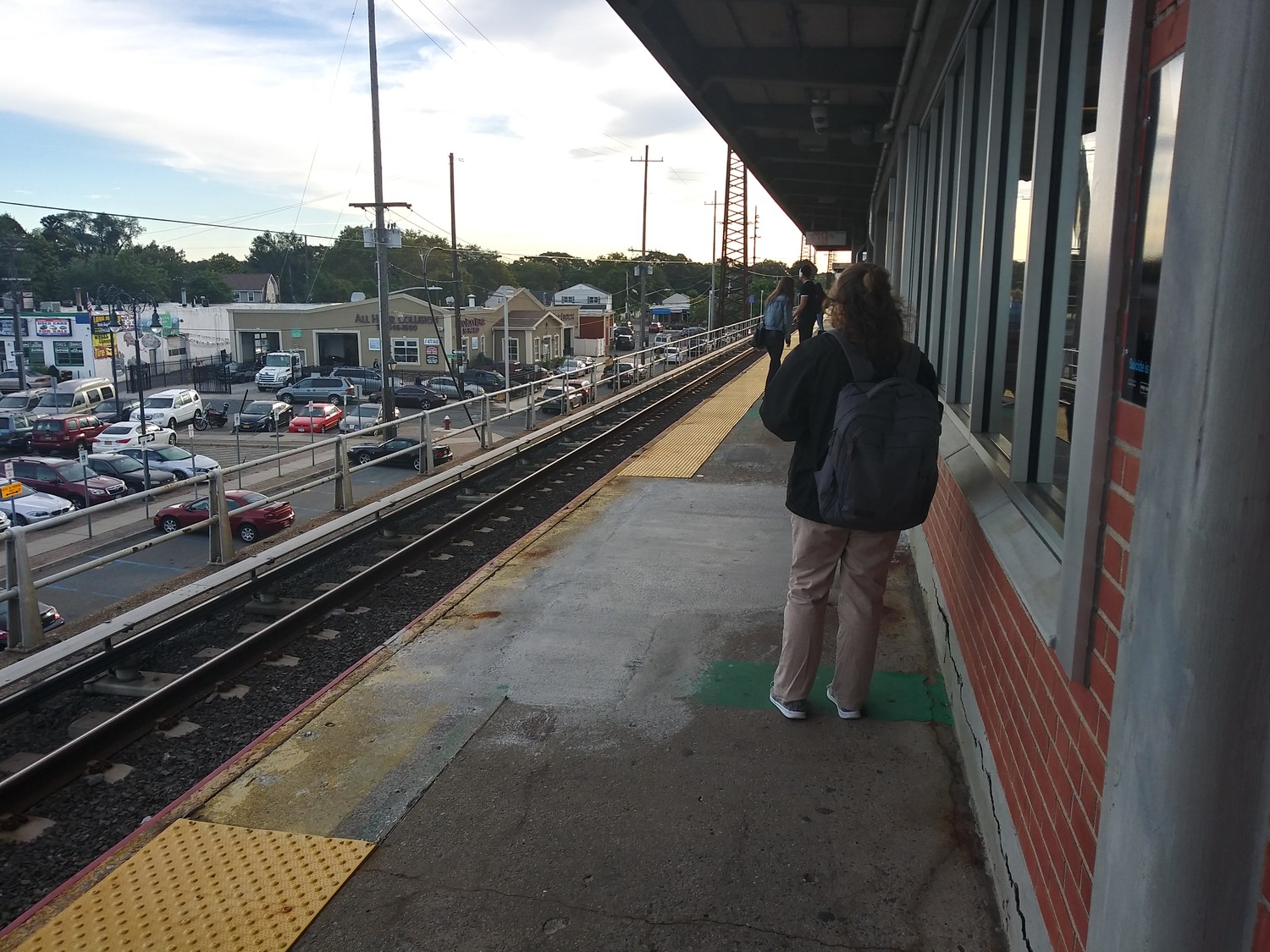Senator says LIRR should freeze fare; pol's poll shows widespread dissatisfaction
Baldwin resident Helen said she often is unable to find a seat on her Long Island Rail Road train to Atlantic Terminal. “Especially in the early-morning rush when all the blue-collared workers are going in,” Helen, who did not give her last name, said at the Baldwin LIRR platform.
The overcrowding is the main reason Helen said she believes LIRR service should improve before she’s asked to pay more for her monthly ticket, which right now costs $300. “I definitely don’t feel like I’m getting my money’s worth now,” she said. And she’s not alone.
State Sen. Elaine Phillips, a Republican from Flower Hill, has started an online petition asking the MTA to put a planned 4 percent fare increase on hold through at least 2021 until “measureable improvements in service” are implemented.
According to the MTA, 87.4 percent of trains operated on time in August — that number was 93.8 in August 2017. From January to August, 89.9 percent of trains have been on time — 1.1 percentage points lower than the same period last year. An MTA report states 10 “infrastructure-related issues” caused 230 trains to be late in August, and 43 were late due to large numbers of passengers going to the U.S. Open at Flushing Meadows Corona Park in Queens.
In an effort to stop the planned increases, Phillips has introduced a bill that would create a “Long Island Commuter Relief Fund,” a pot of money that would help fund the LIRR’s operating budget to ensure riders are not subject to higher rates. The LIRR would only receive its share of that money — which would come from monetary settlements reached by the state — if its average on-time performance improves to 94 percent or better.
A majority of passengers are not just frustrated with the delays, but the quality of service as well, according to a poll released by state Sen. Todd Kaminsky. Kaminsky, a Democrat from Long Beach, asked riders to fill out a survey on their LIRR experiences — only 18 percent of respondents said they’re “very satisfied,” with the rest saying they are moderately satisfied or unsatisfied, with more than 250 of the 560 respondents choosing the latter.
“This survey is an important step to acquire a firsthand view of what is really going on at the LIRR,” Kaminsky said in a statement. “Commuters feel that they are paying far too much for poor service, dangerous conditions and an uncomfortable ride.” The survey included answers from riders throughout the 9th Senate District — which includes Baldwin, Long Beach, Lynbrook, Rockville Centre and Valley Stream.
Not everyone is displeased with the LIRR, though, and one Baldwinite told the Herald he would give the agency a “B.” Wayne, who did not give his last name, said there are some “small” problems with on-time performance. “But nothing major I can’t deal with,” he said. Wayne, who takes the train to Atlantic Terminal, also said he feels he gets enough bang for his buck on the train. “It’s better than driving,” he said.
MTA Chairman Joe Lhota said in a statement that MTA President Phil Eng was recently brought in to turn around LIRR performance.
“And that is exactly what he is doing by delivering an ambitious program that identifies the causes of delays and gets them fixed quickly,” Lhota said. “Beyond that, the MTA is investing a record $6 billion to modernize the Long Island Rail Road with the Double Track, Third Track, new cars, new stations and more. The LIRR is the engine of Long Island’s economy and will move nearly 90 million passengers this year, which is exactly why we are working harder than ever to deliver the service LIRR customers deserve.”
Kaminsky, asked about Phillips’s bill, said he has no problem with its intent but how it was announced at a recent press conference. “It was just Republicans … and candidates who aren’t even elected,” he said. “This is not a partisan issue.”
The senator also said he was the only Long Island state representative to attend a hearing on the MTA and question the agency’s chairman, Joe Lhota. “That hearing was a critical moment,” he said. “Those hearings are not just moments of publicity, it’s where work gets done.”

 44.0°,
Mostly Cloudy
44.0°,
Mostly Cloudy 




